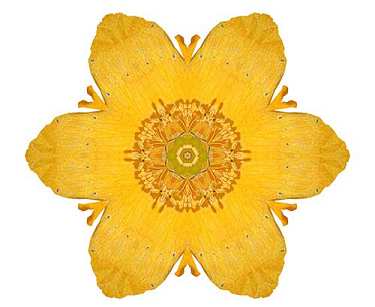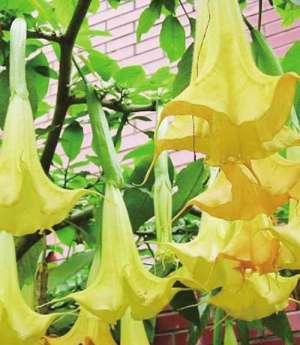教内之法门 Things Inside of Buddhism
2-1-1-2. Things Inside of Buddhism 教内之法门
So the prince gave up those methods and started to eat fruit. Because of this, the five disciples avoided and eventually left him; so he practiced by himself. Having eaten some rice offered by Miss Sujata, his body recovered strength. He reflected on the various methods that he had been practicing but which were not capable of shaking off the defilements. He still had troubles and suffering. So the prince turned around and looked at his mind, and was at last, successful. He attained Anuttara Sammasambodhi Nyana and became the fully Enlightened Buddha. He was able to conquer all the defilements and to extinguish suffering, leaving only coolness. His body was back to normal and His mind was free of suffering at last. He lived with and enjoyed the happiness of awareness and wisdom. Having attained this, the Buddha shrank back from teaching, reflecting that this practice was profound, and it would be hard to understand. So it can be taken that mind development is something difficult to do and that this is what Buddhist teaching is about. As for making merit, being generous, keeping precepts, and doing tranquility– meditation, it is not the teaching of the Buddha but a teaching of teachers at large.
于是太子放弃了那种苦行的方法而开始进食水果。因为这样,那五个弟子最后离他而去,所以,他开始独自修学。在吃了Sujata供养的一些饭食之后,他恢复了体力。他反省以前修学过的各种方法,但是那些方法依然无法除去烦恼。他还是有烦恼痛苦。于是太子反过来观照他自己的心,而因此终于成功了,他得到了无上圆满正觉的智慧(Anuttara Sammasambodhi Nyana) ,而成为完全觉悟的佛陀,他征服了所有烦恼并且止熄了诸苦,唯存一片清凉自在。他的身体回复正常而他的心终于解脱了苦恼,他的生活充满觉知与智慧的喜乐。在得到这种成就之后,佛陀却退缩不想教导众生,他沈思:这种修行非常深奥,一般人很难理解。因此可以这么说,「修心」是非常困难的事,而这也才是佛陀所教导的内容。至于作功德、布施、持戒及修止禅…等等,这些都不是佛陀所教导的,而是其他一般老师所教导的。

- 准提咒正确念法
- 太上清心咒全文
- 为什么晚上不能听大悲咒
- 超度经文往生咒全文
- 准提咒功德及妙用求财
- 62条人生妙言妙语,帮助你
- 诵大威德金刚咒的感应
- 长寿佛心咒注音
- 普贤行愿品全文诵读含仪轨
- 六字真言作用和功效
- 药师佛心咒正确念诵的方法
- 简单的清心咒口诀
- 六字真言的作用和功能
- 普门品念诵的正确方法
- 准提咒手印全图
- 普贤行愿品回向文全文
- 净身 口 意三业真言拼音
- 金刚经四句偈语解释
- 普贤行愿品全文念诵仪轨
- 道家静心咒原文
- 大悲咒原版30分钟mp3
- 准提咒回向文大全
- 心经可以随便抄吗
- 准提咒全文正确注音
- 天眼看持准提咒人
- 准提咒全文拼音版
- 诵金刚手菩萨圣号的感应故
- 《金刚般若波罗蜜经》
- 楞严咒快速记忆法
- 念坚牢地神咒的感应
- 财神咒念诵108遍
- 药师咒念诵正确方法有哪些
- 准提咒晚上不能念
- 家里播放普庵咒的禁忌
- 在家诵地藏经正确仪轨及回
- 普贤行愿品偈颂全文
- 念大悲咒使人阳气上升
- 《金刚经》全文-金刚经原文
- 女子在家念地藏经注意事项
- 地藏菩萨心咒108遍
- 神龛 The Spirit Shrine
- 礼敬佛陀 Paying Homage To The B
- 破愚痴见惑的阶位:初禅 T
- 直取快捷方式的摘要 Summary
- 矫正观念 Adjusting Views
- 毘婆舍那与平静 Vipassana and
- 直取快捷方式 Taking a Shortcu
- 正确培养觉性,三年便能证
- 正确培养觉知的果报 The Res
- 果报:心地清净 The Result :
- 果报:出世间 The Result Is To
- 果报:当下的天堂与涅槃 T
- 教外之法门 Things Outside of B
- 断烦恼执着的阶位:二禅 T
- 无上的庇护 The Exalted Refuge
- 教外之教导 Teachings Outside o
- 教内之教导 The Teachings insid
- 教内之法门 Things Inside of Bu
- 开光仪式 Opening-Ceremony
- 总结平静之道 Summary
- 庄严圣洁之物 Sacred And Holy
- 平静之道 The Path of Peace
- 幸运日 Lucky Days
- 培养觉知·生起智慧 Developi
- 寂静与涅槃 Peace And Nibbana
- 圣眼与圣耳 Divine Eye - Divine
- 地狱、天堂、涅槃 Hell , Hea
- 善人与恶人 Virtuous People - E
- 善果现起 The Outflow Of Good Re
- 凡与圣 Ordinary Beings and Noble
- 前言 Foreword
- 其它 Miscellaneous
- 具德者的宝藏 The Treasure Of
- 人的种类 Some Types Of People
- 以自为依·如法而行(自依·
- 修学阶段 Stages of Practice
- 了悟平常心:三禅 Normality
- 一掌之叶:觉知 A Handful of
- 了悟人人本具 Knowing that it
- 往生极乐世界 愿心为先
- 悟显法师:华严、法华均圆
- 我修学了凡四训的一些做法
- 张智霖:经营自己的肉身(图
- 惟觉法师:佛法与世间法
- 心律法师:忍辱苦修成大业
- 恬静安逸 清新隽美—评画家
- 我的修学报告:阿难问事佛
- 放生蛇会报恩吗?
- 恭敬心很重要
- 悟妙法师:我经常感到痛苦
- 怎样获得美好姻缘?
- 很想用所学到的佛法知识影
- 悟毅:学佛对我人生的影响
- 想清凉“爽一夏”吗?峨眉
- 往生极乐世界是为了更好地
- 念观音圣号提前合掌往生
- 大安法师:回向的功德是否
- 怎样戒烟
- 心律法师:最好的悟禅之道
- 悟显法师:印经布施开智慧
- 张继宝不孝遭雷殛
- 惟觉法师:六祖坛经 憨山大
- 放生蛇之详细攻略
- 我受了12年的等流果和增上
- 悟强:你快乐吗?谈大方和
- 恭迎伽蓝菩萨圣诞!教您唱
- 我的前半生从死阴的幽谷到
- 大安法师:因微果丰、做怪
- 往生极乐世界最殊胜
- 念佛感应见闻记:阿伽陀药
- 心律法师:脱掉你脆弱的外
- 悟显法师:口业清净不染尘
- 念佛不出声心里默念可以吗
- 悟演法师:三止三观
- 感恩上净下空老法师
- 很重要,去寺院吃饭要注意
- 悟显法师:万般将不去,唯
- 想看到僧宝的功德也需要大
- 怎样才可以彻底放开一个人














